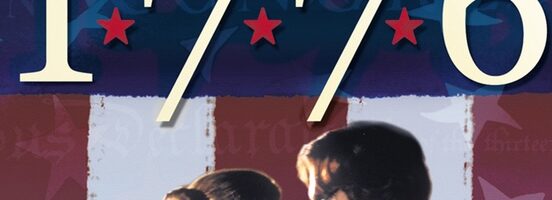Another couple of random book reviews from my own blog.

Affairs of Honor: National Politics in the New Republic by Joanne Freeman shows how the political leaders of the Revolutionary generation worried about reputation and honor to the point the Klingons look laid back by comparison. One way to prove you had honor? Dueling.
Freeman captures well the complexities of national government in an era when politics and electioneering were considered shameful, even by people who engaged in them, and when calling someone a liar (also “scoundrel” or even “puppy”) was grounds for a duel. Indeed, being insulted and failing to issue a challenge was a mark of shame. Not that you had to fight but you had to show you were willing to defend your reputation with your life, or to stand behind the accusations you’d hurled. Alexander Hamilton was involved in several duels before his fatal showdown with Aaron Burr but the two parties’ seconds negotiated a nonviolent resolution to all of them .
Freeman also discusses the methods of political attack including newspaper articles, letters, gossip and the duel itself, and how they affected the men posing for public acclaim (like a lot of historians, Freeman sees Adams as someone too impetuous to get the pose right). Freeman argues the era’s concern for reputation and honor explains seemingly illogical acts such as Hamilton refusing to shoot. A fascinating book.
Several years ago, I discussed my dissatisfaction with honor as a concept — not that being honorable is bad, but that honor is too  wrapped up with pride and reputation to be of value. Reading AMERICAN HONOR: The Creation of the Nation’s Ideals During the Revolutionary Era by Craig Bruce Smith makes me appreciate there are more ways to interpret “honor” than I conceived at the time.
wrapped up with pride and reputation to be of value. Reading AMERICAN HONOR: The Creation of the Nation’s Ideals During the Revolutionary Era by Craig Bruce Smith makes me appreciate there are more ways to interpret “honor” than I conceived at the time.
Smith looks at how America in the colonial and revolutionary era debated the nature of honor. Did it come from titles and pedigree, as it did in Europe? Wealth and outward display of status? Was virtuous or ethical conduct part of being honorable or were they separate things? There was also a sense of the American colonies having a collective honor, something under attack by the British crown’s increasingly high-handed rule; in that light, even women and free African-Americans could earn honor by working for the cause of independence.
This belief in gaining honor by serving the nation didn’t erase the idea of personal honor and the two often conflicted, particularly in the military where rank and pay were both seen as a measure of your honor. Benedict Arnold’s betrayal, for instance, was fueled in part by the belief he hadn’t received the honor and status he deserved. After the revolution, with no similar cause to fight in,the next generation became increasingly touchy about personal honor, which morphed into something closer to what my old post complained about. Specialized but worth reading.

